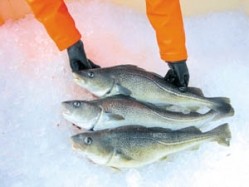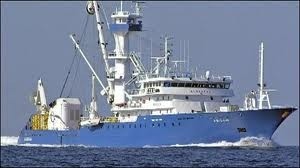Seafish boss warns CFP reform implementation will be tough

Philip MacMullen, head of environmental responsibility at pan-fishing industry body, Seafish, told FoodManufacture.co.uk that, while draft CFP reforms published by the European Commission (EC) in mid July have been widely praised, they are likely to be watered-down.
Any changes must secure a unanimous vote from the Council of Ministers, followed by a majority vote by the EU Parliament, which made further changes likely, he said.
Ban on discards
And while such measures as the universal ban on discards (fisherman throwing unwanted fish back into the sea) sounded good, this particular change might be hard to implement, MacMullen warned.
For instance, fish such as sharks and skate as well as turtles usually survive when discarded, he said. It would be perverse to insist on bringing them ashore to die.
Any discards ban would have to have specific clauses covering different cases, but the exact wording would be difficult to finalise, MacMullen added.
He said that landing what was caught provided fishermen with three options.
Firstly, fisherman might be able to find a market for under-utilised fish, he said. But taking a diverse number of species from scattered small ports to the correct market would be a logistical nightmare.
A second option involved using unwanted fish as fish meal, but such a product would need to be food-grade, he said. This would necessitate storage along the lines of that used to house the most valuable catch, which would be expensive.
Landfill or incineration was a “silly and very expensive” third option for fishermen, MacMullen added.
Monitoring effective?
Monitoring any changes would also be problematic, MacMullen said, since it is difficult to put inspectors on every boat, while questions remain about the effectiveness of video monitoring.
It would be very hard to prove discarding based on landings, since a clean catch could be the result of discards, good fishing or sheer luck, he added.
More broadly, decentralisation and local regulation was the most important aspect of the proposed CFP reforms and it was essential, and likely, that it would pass, said MacMullen,
He added that this could provide answers for many of the other issues.
The Food and Drink Federation (FDF) and Young’s Seafood have also expressed support for decentralising CFP administration.
CFP reforms are now being submitted to the European Parliament and Council for adoption under the ordinary legislative procedure (co-decision). The EC wants to implement the new framework by January 2013.















